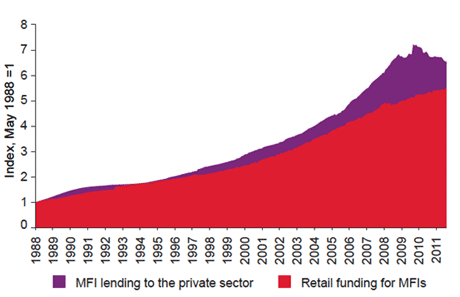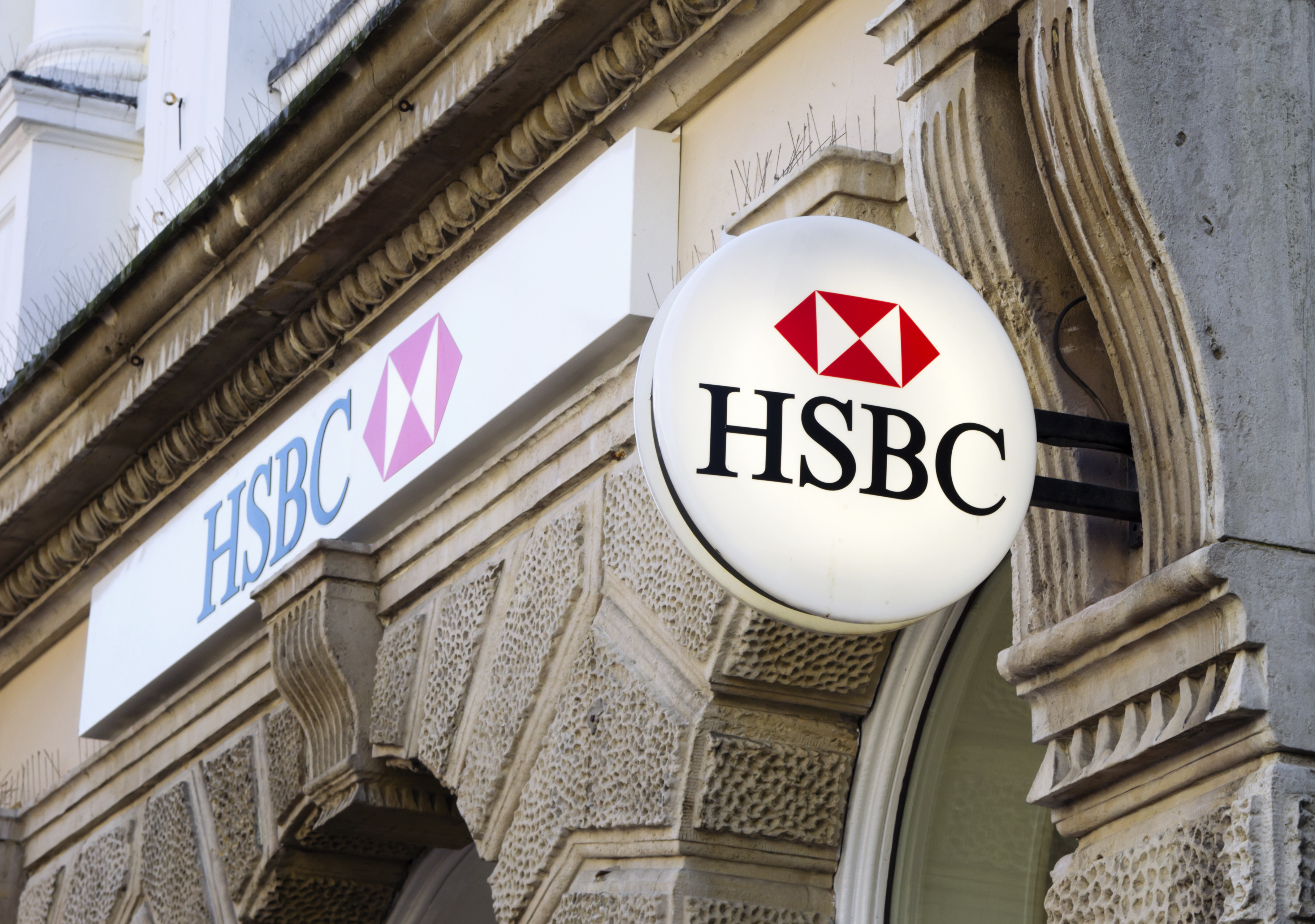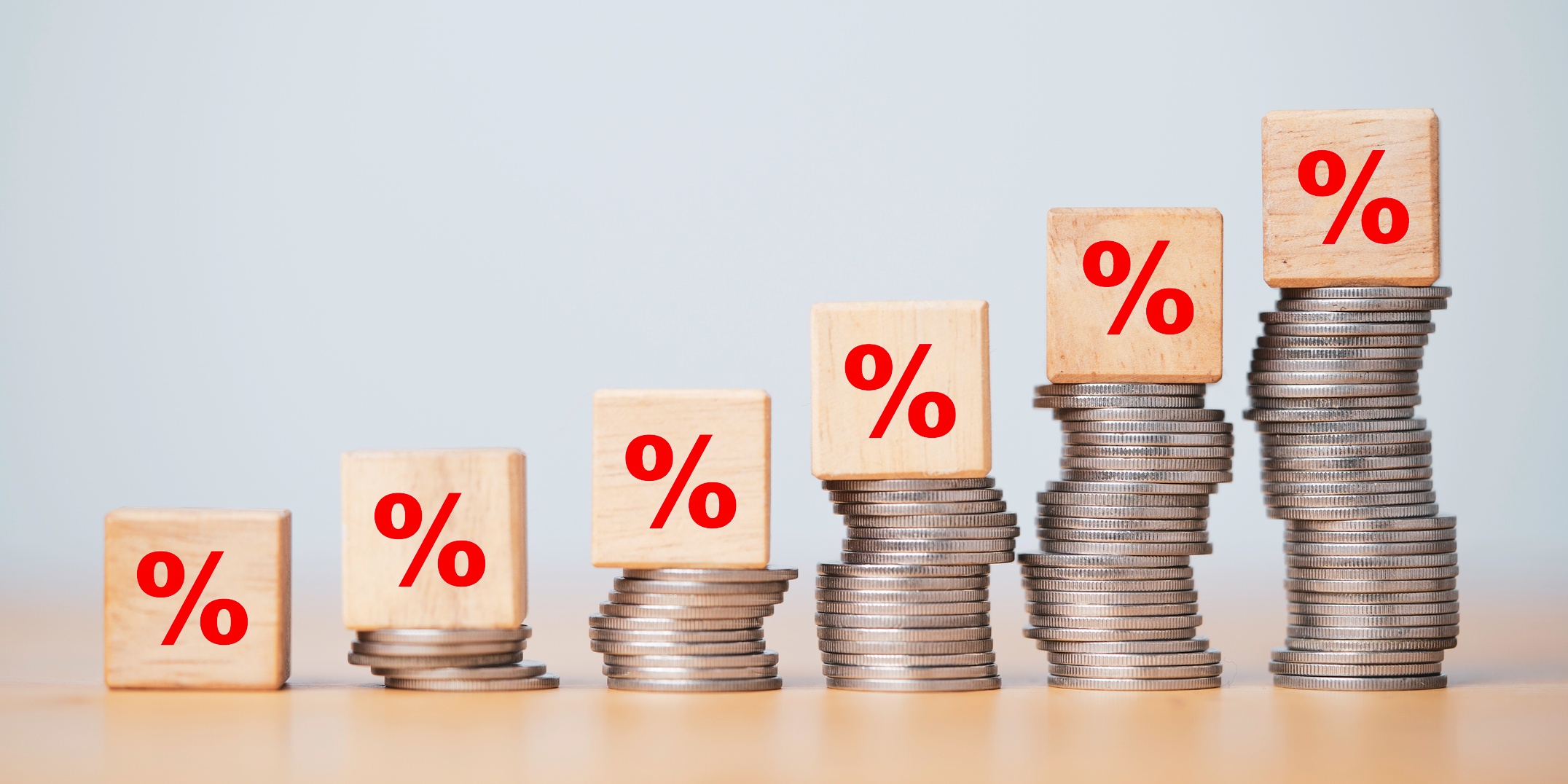Looking for a great investment? Overpay your mortgage
Overpaying your mortgage is one of the best investment decisions you can make, says Phil Oakley. Here, he explains why.
Get the latest financial news, insights and expert analysis from our award-winning MoneyWeek team, to help you understand what really matters when it comes to your finances.
You are now subscribed
Your newsletter sign-up was successful
Want to add more newsletters?

Twice daily
MoneyWeek
Get the latest financial news, insights and expert analysis from our award-winning MoneyWeek team, to help you understand what really matters when it comes to your finances.

Four times a week
Look After My Bills
Sign up to our free money-saving newsletter, filled with the latest news and expert advice to help you find the best tips and deals for managing your bills. Start saving today!
Overpaying your mortgage is generally a good idea. In fact, it's possibly one of the best investments you can make.
And now could be a particularly good time to do it. Given the low rates available on cash savings, we think that paying extra to your mortgage is a very under-rated long-term savings plan, particularly if you are feeling wary of investing.
And with mortgage rates set to go higher - several mortgage providers have hiked their standard variable rates (SVRs) in recent weeks, and more are likely to follow - it's becoming even more attractive.
MoneyWeek
Subscribe to MoneyWeek today and get your first six magazine issues absolutely FREE

Sign up to Money Morning
Don't miss the latest investment and personal finances news, market analysis, plus money-saving tips with our free twice-daily newsletter
Don't miss the latest investment and personal finances news, market analysis, plus money-saving tips with our free twice-daily newsletter
Why mortgage rates are rising
Mortgage rates typically move in tandem with the Bank of England's base rate. So with the base rate unchanged at 0.5% for the last three years, why are mortgage rates going up now?
It's down to the way that mortgage providers are financing themselves. In recent weeks we've sung the praises of HSBC and Standard Chartered for their sensible finances.
These banks still stick to a basic rule of not lending more to borrowers than they take in from savers. Unfortunately, most UK mortgage providers aren't financed like this.
Have a look at the chart below. The purple shaded area shows the amount of lending to the UK private sector. The red shaded area represents the amount of deposits by private sector savers.
As you can see, there is a big gap between the two. This gap has to be filled somehow. Many banks and building societies have chosen to plug the gap with short-term wholesale finance from the international money markets.
The problem with this type of finance is that its availability and cost (the interest rate charged) moves about a lot. We saw this in 2007 when Northern Rock - which aggressively financed itself with wholesale finance - literally ran out of money as the financial crisis developed.
Nervousness about the eurozone and the health of the banking sector has seen interest rates on wholesale finance tick higher over the past year or so. This is bad news for mortgage providers - and for mortgage holders.
Bank & building society retail funding gap

Source: Bank of England
Mortgage providers are only too aware of this funding gap' and are trying to do something about it by raising more deposits from savers. But this has made the market for savers more competitive, particularly on products like fixed-term savings bonds and cash individual savings accounts (Isas).
So to entice savers, banks have to offer higher rates. This in turn again pushes up costs for banks and these costs are being passed on to borrowers in the form of higher mortgage rates.
This may seem like madness given that so many households are struggling to meet their monthly mortgage payments. It probably is, but banks can only cut so many costs.
Banks such as RBS and Lloyds have so many risky loans they need to boost profits in order to offset the potential losses from the loans that go bad. Whether this pushes more households over the edge remains to be seen.
What can you do about it? Pay off your mortgage earlier
One of the obvious responses to rising mortgage rates is to fix or cap your interest rate for a period of time. There are some good deals about.
For example, HSBC will lend at 1.89% above the Bank of England base rate for the term of your mortgage, or at 1.99% fixed for two years. The only drawbacks are that you need a deposit of 40% (or minimum loan-to-value of 60%) and have to pay arrangement fees of £1,499 and £999 respectively.
If you have some spare cash, an alternative is to overpay your mortgage. In fact, for many people, it probably makes more sense to prioritise repaying your mortgage over investing in a pension plan.
The returns from doing so are very compelling, and make mortgage overpayment a viable investment plan in its own right.
Have a look at the table below.
| Halifax | 3.50% | 4.40% | 5.83% |
| Nationwide | 3.99% | 5.00% | 6.65% |
| First Direct | 3.69% | 4.60% | 6.15% |
| NatWest | 4.00% | 5.00% | 6.67% |
| Barclays | 3.89% | 4.90% | 6.48% |
| Santander | 4.24% | 5.30% | 7.07% |
| Cheltenham & Gloucester | 3.99% | 5.00% | 6.65% |
| Britannia | 4.24% | 5.30% | 7.07% |
Source: company websites
What the table shows is the current SVRs of the major mortgage lenders and the equivalent pre-tax savings rates for 20% and 40% taxpayers. The great thing about overpaying your mortgage is that you don't pay tax on the interest savings. This is not the case for most savings accounts (except Isas).
As a rough rule of thumb, if your mortgage rate is higher than the after-tax rate you are earning on your savings, it makes sense to pay off your mortgage rather than have your money in a savings account.
Admittedly, Halifax's five-year fixed-rate cash Isa of 4.5% could be good value here (although you are limited to £5,640 per year from April). However, the interest advantage depends on mortgage rates not increasing for the next five years. If you don't want to take that risk, then the arithmetic of paying off your mortgage might help you decide.
The arithmetic of mortgage repayment
Let's say you take out a £200,000 repayment mortgage at 4% for 25 years. Your monthly payment will be £1,056. At this interest rate, you will repay £316,702 over 25 years.
If you decide to overpay by £100 per month (by paying £1,156 a year) and keep paying this amount, you would save nearly £18,000 of interest (tax free) and take just over three years off your mortgage term.
As you can see, the numbers become more attractive with bigger overpayments and higher interest rates.
| Monthly payment | £1,056 | £1,156 | £1,256 | £1,356 |
| Interest paid | £116,702 | £98,791 | £85,635 | £75,716 |
| Capital repaid | £200,000 | £200,000 | £200,000 | £200,000 |
| Total payments | £316,702 | £298,791 | £285,635 | £275,716 |
| Years to repay | 25y | 21y 8m | 19y | 17y |
| Savings | £0 | £17,911 | £31,067 | £40,986 |
| Monthly payment | £1,169 | £1,269 | £1,369 | £1,469 |
| Interest paid | £150,754 | £126,530 | £108,995 | £95,922 |
| Capital repaid | £200,000 | £200,000 | £200,000 | £200,000 |
| Total payments | £350,754 | £326,530 | £308,995 | £295,922 |
| Years to repay | £25 | 21y 7m | 18y 11m | 16y 10m |
| Savings | £0 | £24,224 | £41,759 | £54,832 |
This looks like a reasonable savings plan combined with the benefit of freeing up several years of spare cash. If you have the ability to make bigger lump sum payments, then the numbers are even more powerful.
For example, if you used your Isa allowance to make a capital repayment at the end of every year, a £200,000 mortgage at 4% interest could be paid off in 13 years, saving £64,211 in interest payments.
What to bear in mind before making over-payments
Can you afford to make extra payments? Don't overstretch yourself.
Pay off any expensive personal loan or credit card balances first.
Beware of repayment penalties, although these may still be worth paying if the interest savings are big enough.
Consider an offset mortgage to achieve similar benefits if you don't want to tie up money in your house.
Get the latest financial news, insights and expert analysis from our award-winning MoneyWeek team, to help you understand what really matters when it comes to your finances.
Phil spent 13 years as an investment analyst for both stockbroking and fund management companies.
-
 Should you buy an active ETF?
Should you buy an active ETF?ETFs are often mischaracterised as passive products, but they can be a convenient way to add active management to your portfolio
-
 Power up your pension before 5 April – easy ways to save before the tax year end
Power up your pension before 5 April – easy ways to save before the tax year endWith the end of the tax year looming, pension savers currently have a window to review and maximise what’s going into their retirement funds – we look at how
-
 Green mortgages: how do they work and how much can you save?
Green mortgages: how do they work and how much can you save?Most high-street lenders now offer some kind of green mortgage deal. We look at who’s eligible, how to apply and the mortgage rates and cashback on offer
-
 Thousands of Brits switch to Nationwide, Monzo and NatWest – which banks are least popular?
Thousands of Brits switch to Nationwide, Monzo and NatWest – which banks are least popular?We look at the most and least popular banks and building societies as current account bank switches reach a record high. Is it worth moving your money?
-
 Best and worst UK banks revealed
Best and worst UK banks revealedWe reveal the best UK banks – and the worst – when it comes to managing your money and good customer service. How does your provider compare?
-
 HSBC launches £220 bank switching deal - should you move banks?
HSBC launches £220 bank switching deal - should you move banks?HSBC is heating up the bank switching market with £220 up for grabs if you switch to its current account. But is the sweetener worth it and who can get it?
-
 Get up to £205 by opening two HSBC accounts - and you don’t need to switch
Get up to £205 by opening two HSBC accounts - and you don’t need to switchCustomers opening a HSBC current account plus the Global Money Account can bag up to £205 free cash. We have all the details on how to get the cash bonus.
-
 Act fast: HSBC to pull its 5.7% one-year bond
Act fast: HSBC to pull its 5.7% one-year bondSavers have until Wednesday to apply for HSBC’s one-year fixed-rate bond. The withdrawal of the account follows NS&I’s decision to pull its market-leading one-year bonds earlier this month. We explain why you need to act fast to secure the best rates.
-
 Could you be putting your retirement at risk with a 40-year mortgage?
Could you be putting your retirement at risk with a 40-year mortgage?Increasing numbers of buyers have opted for longer-term mortgages to cope with the cost of living crisis but could they be putting their retirement at risk?
-
 Lloyds, Santander and HSBC hike savings rates
Lloyds, Santander and HSBC hike savings ratesBanks and building societies have been raising their savings rates as the base rate continues to rise. Our round-up of all the savings rates hikes.